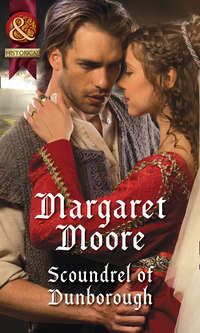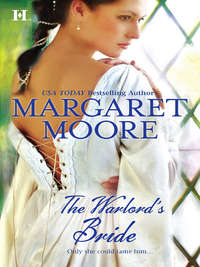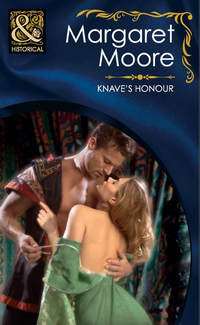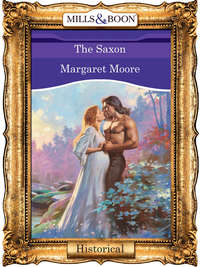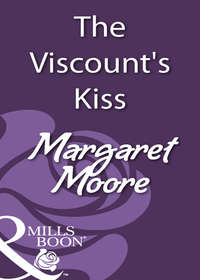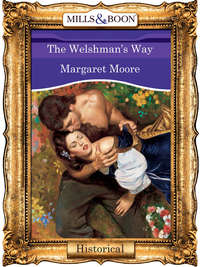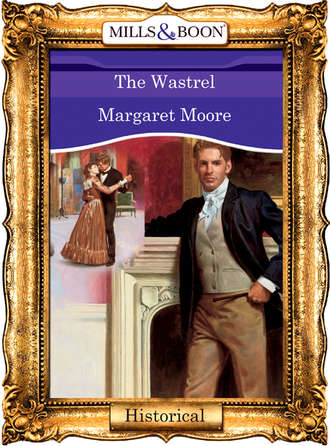
Полная версия
The Wastrel
Even if he was the most tempting man she had ever met.
Chapter Two
“Don’t you agree, Mulholland?” Lord Pimblett demanded, smacking his palm on the marble mantle of the drawing room, which was decorated with all the embellishments currently in vogue. “Give ’em a bit, and they only want more! Workhouses and the Poor Law Amendment Act are the best things that ever happened to this country, sir!”
Paris was quite sure Lord Pimblett was adding, “You young muttonhead!” in his mind, even though the man clearly cherished hopes of having his eldest daughter wed to the Mulholland name and fortune, if not the physical embodiment of those things. He was also very well aware that he had an audience of young female admirers gathered about him like so many colorful butterflies, so he waved his wineglass in a shallow salute.
“I myself have never lived in one of their hovels,” he replied to the indignant nobleman, whose face flushed with irritation, “worn filthy, flea-infested clothing or eaten one of their pitiful meals. Since I do not possess the imagination of your lordship, so necessary to pass judgment when one lacks experience, I must bow to your superior knowledge of the lives of the lower classes.”
Lord Pimblett’s face turned scarlet, which made an interesting contrast with his white muttonchop whiskers. Paris knew he had made his point and gone quite far enough in exposing the shortcomings of his host’s opinion. Therefore, he smiled graciously and took a sip of his wine.
“Fancy you in rags!” one of the ever-present young women said with a shocked gasp and a giggle.
“None of you would ever look at me again,” Paris said sorrowfully and waited for the young women to protest. As they immediately did.
It amused him to watch their reactions—one of the few things in London that did amuse him anymore. Some bored young men turned to drink, or gambling or more sordid vices when life palled; Paris Mulholland amused himself by playing the charming wastrel, with the additional benefit of being the center of attention for such delightful bevies of carefully bred young ladies.
Not that he had any desire to seduce even one of the eager women, although it pleased his vanity to make them swarm around him. They were too innocent and unworldly, most of them, and despite his name and not completely unearned reputation, he would not take advantage of their naiveté. Trying to maintain their adulation simply made the interminable Season pass.
He turned away to hide his satisfied smile, and encountered the watchful eyes of the young woman he had met outside, the artist’s niece, Clara. She sat in the farthest corner of a window seat, nearly hidden behind a large potted fern, as if she were afraid to be seen.
She looked like a nun in a cloister, and a strict one at that, with her dark brown hair pulled back plainly in a hard little knot of a bun, her dark brows slightly too thick to be conventionally pretty, and her full lips pressed together repressively. She wore an abominable gray dress with an absurdly high neckline and tight sleeves. A hair shirt would be more comfortable than that garment, he thought, which did nothing to flatter its wearer. Perhaps she enjoyed the mortification of the flesh.
As he caught her eye, her mouth frowned as grimly as the sternest of nannies catching a young charge in some mischief, and in her eyes was contempt rather than admiration.
So he winked at her.
She didn’t do anything. Didn’t blush, didn’t glare, didn’t smile, didn’t frown. She simply looked at him as if...as if he weren’t there.
Paris Mulholland was not used to being ignored, and he found it an intensely unpleasant experience.
Telling himself one young woman’s lack of response was unimportant, he looked away and saw Lady Pimblett slowly advancing toward him, nodding graciously at the assembly. Her presence, along with the nearly overpowering scent of perfume that pervaded the air around her, reminded him of his bet. He didn’t need Boffington’s money, of course; he simply found betting on such things harmless sport.
And if certain young females thought him nothing but a complete waste of breath and life, he didn’t care.
“I was reading a book by that chap Dickens,” he drawled, bestowing a warm smile on his hostess. “Oliver Twist. He’s rather too good at describing things we shouldn’t have to think about, wouldn’t you agree, my lady? Poorhouses and starving children and thieves. And that part about beating a young woman to death....”
“Oh, my,” her ladyship murmured.
Paris then had the immense satisfaction of seeing Lady Pimblett sink onto a sofa and fan herself violently. Four times in less than two hours! Too easy, really, indeed!
“That Dickens fellow should be horsewhipped!” Lord Pimblett blustered. “Stirring up all kinds of trouble. Thinks we should all give up our money to buy mansions and sweet cakes for the poor, I suppose! Stupid fool!”
“He’s a wonderful chap to have at parties,” Paris remarked, recalling well the only time he had met the writer, whose works he had never actually read. Dickens enjoyed the theater, and had been almost a whole play in himself as he acted out parts of Oliver Twist. It was a never-to-be-forgotten experience.
“If I ever meet him, I’ll...I’ll...He’ll be sorry!” Lord Pimblett continued. “The poor are lazy, sir, lazy, and if they won’t work, they should starve!”
Paris’s fingers tightened around the delicate crystal glass that cost more than many a man earned in a year. He never ceased to be amazed at the way the men of his class were all too quick to ascribe certain characteristics to the lower classes when he could think of several of them who would starve to death if they didn’t have family fortunes to sustain them.
Lady Pimblett recovered sufficiently to rise slightly, her action causing him to note yet again the opulent ostentation of the woman’s garments, as well as the fraudulent air of weak ill health that she enjoyed to the utmost.
One more swoon and he would win his bet. Telling himself not to fret about any disapproval a gray-gowned young lady might express, he quite remorselessly applied himself to the task.
“But the bodies, my lord,” he said plaintively. “What would we do with the piles of bodies that would be left in the street? The stench—”
He won his bet, and in the process it looked as if he had succeeded in causing Lady Pimblett to truly faint. His audience of young ladies emitted politely shocked squeals of alarm, and their fans moved rapidly.
His glance was drawn once more to the window seat, now empty. Just as well. The gray nun would only be looking daggers at him anyway.
“Don’t just stand there!” Lord Pimblett rumbled to nobody in particular. “Water!”
Paris obliged by yanking some huge and exceedingly ugly chrysanthemums out of a vase standing on a spindly-legged table, dipping his fingers in the water, and sprinkling his hostess’s face.
Lady Pimblett came to with startling abruptness as her cheeks changed color before their very eyes, going from a fashionable paleness to a far more healthy rose. The young ladies, whose mothers would never permit any application of cosmetics and acquainted that practice with the oldest profession, drew back in stunned horror as Lady Pimblett swiftly covered her face with her lace fan.
Lord Pimblett was staring as hard as any of them, and it occurred to Paris that perhaps he had never seen his wife without certain cosmetic additions. Poor man—and poor, deluded Lady Pimblett, for her natural color was far more pleasing to Paris’s eye than the white of her powder.
Then, out of the corner of his eye, Paris saw a beautiful and haughty young woman at the far end of the room, wearing a very expensive, fashionable, low-cut gown of pink silk that exposed her considerable personal charms. Lady Helena Pimblett, the woman he was supposed to marry—or so Helena firmly believed, although he himself had said nothing about such a thing—hurried toward him, a questioning look on her fair and arrogant face.
A precipitous flight was clearly called for. Paris muttered another apology and strode toward the door.
As he passed by a gaggle of different young women, each one perfumed and overdressed in the latest fashions, which meant that they resembled nothing so much as large bells, he smiled and nodded and wondered what the severe Miss Wells would make of the way they eyed him. Each one, he knew, was sizing him up as marriage material; each one would probably take him, if he offered.
Not Miss Wells, he ventured, recalling her indifferent expression.
He kept walking, since it would be a little time yet before Jones returned with his carriage. People were everywhere, it seemed, and the air was warm and stuffy. He spied the entrance to the library, and decided to see if that dark, mahogany-paneled room was any emptier. He opened the door, then paused.
A man was sitting on the floor, surrounded by a pile of books, mumbling. Paris recognized Byron Wells by his unusually long, white hair. A scholar, probably—something guaranteed to make Paris flee his presence. The young man slipped out again unnoticed.
He was about to continue on his way when he saw the edge of a now-familiar gray gown just inside the door of the music room and heard the artistic Mrs. Wells, her voice enthusiastically issuing forth from inside.
“I quite dote on flowers,” Aurora Wells said. “They make such pretty still lifes, don’t you think?”
Hester Pimblett, Helena’s younger sister, moved into view. Unlike her elder sister, Hester dressed in a simple manner. Her ball gown was made of blue velvet, which looked well with her brown hair and managed to bring out the blue in her large eyes. For embellishment, she wore only a simple pearl necklace and white elbow-length gloves. She would no doubt find the stern Miss Wells something of a kindred spirit, at least as far as simplicity of clothing went. Nevertheless, compared to Clara Wells, Hester — indeed, all the young ladies of Paris’s acquaintance—seemed distinctly lacking in some vital energy.
The prospect of seeing the rather straitlaced middle Pimblett sister, who was a sweet young woman with about as much personality as a bowl of porridge, encounter any kind of artist would be entertaining, and even more so if the artist were the vivacious Mrs. Wells. There was also the added inducement of watching Clara Wells when she was with other women to make Paris choose to linger.
Not that he cared if she was dour only when he was nearby, indicating a disapproval of him personally. She was nobody, and so it was completely irrelevant what she thought of him.
However, Paris also realized that Hester would become as silent as a stone if she knew he was listening, so he hid in an alcove behind a large Oriental vase on an ornate wooden stand.
“People are so much more interesting than a bowl of fruit!” Mrs. Wells continued. “And the fresh fruit attracts flies, especially in the summer months! I assure you, I thought I would go mad the last time I did such a painting. I much prefer portraits. So much more scope for expression!”
“Do you have models?” he heard Hester ask timidly.
“Of course I do,” Mrs. Wells replied. “Painting the human figure is not easy.”
Paris shifted behind the vase, wanting to catch a glimpse of Clara Wells’ face for no reason he wished to acknowledge. He was rewarded for his efforts by encountering a type of expression that he had never seen before, but had often felt upon his own visage when his mother had been in one of her gayer moods: a sort of patient forbearance, embarrassment and defiance all rolled into one. His mother, much as he had loved her, had frequently scandalized a dinner party with her comments.
“What of the classical scenes you do, such as your lovely fan,” Hester asked, “when your subjects are...that is, when they aren’t... ?”
“When they’re nude?” Mrs. Wells demanded.
Paris had to shove his hand in his mouth to avoid laughing out loud at poor Hester’s blushing yet avidly curious face—and he thought Clara Wells not incapable of plotting a murder, judging by the look in her eyes as she regarded her aunt and crossed her slender arms.
Hester nodded once and looked around guiltily, causing Paris to move as far back into the alcove as possible. He had no idea that Hester would ever express curiosity on such a subject.
“Nudes are all very well, but I can so rarely find a decent body.”
“Aunt Aurora!” Miss Wells admonished helplessly.
Paris’s heart went out to the blushing, appalled Miss Wells. He well remembered how easily upset a young person could be by a parent’s behavior.
“It’s all right,” Hester said in her warm, friendly way. “I asked her about it. And I appreciate her honesty. It’s quite refreshing.”
Clara Wells relaxed visibly, and smiled.
She really wasn’t homely, with her frank hazel eyes, pointed elfin chin, perfect complexion and widow’s peak. Indeed, she seemed quite a different person altogether when she smiled, and one he would like to know better.
“What would you consider a decent body?” Hester asked, a studious expression on her face.
Mrs. Wells played with her absurdly delightful turban, which had slipped slightly askew. “Michelangelo’s David, for one. And I daresay that under Lord Mulholland’s clothing there’s a body worth painting.”
“Or else he has a magician for a tailor,” Clara Wells said. The expression in her hazel eyes could only be called devilish.
Paris was not exceptionally vain; however, he did not appreciate hearing that anyone would think he had need of special tailoring to render his form attractive.
“Oh, that’s all natural,” Hester said, laughing softly.
“Really?” Mrs. Wells demanded. “How do you know?”
Paris waited for her answer with acute curiosity.
“My sister Helena told me.”
It took a great deal of self-control for Paris to remain where he was instead of demanding to know what the devil Helena knew about it. But Hester would never answer such a query if he were to ask it bluntly.
Fortunately, Hester saw the almost equally curious expression on Clara Wells’ face. “She saw him without his shirt one day when she was walking past his bedroom,” Hester explained.
Gad! Paris thought angrily. He would keep his door bolted from now on, especially given that the Pimbletts were due to visit his country home when the Season ended.
“Well, then, I must do a portrait of him,” Mrs. Wells replied decisively. “I shall have to improve upon the acquaintance first, of course, and show him samples of my work. If only the Season were not nearly over! I shall have to wait until it resumes, I suppose.”
“Yes,” Hester agreed. “He is leaving soon for his house in the country.” She gave Mrs. Wells a smile. “My family is to visit him there later.” She flushed a bright red. “I don’t know how I shall ever look him in the face now!”
Mrs. Wells laughed genially and winked. “The man is so perfectly charming, I’m sure you’ll find a way.”
“Oh, no! Not at all! I have no interest in him that way,” Hester protested sincerely, blushing again. “My sister...” Her words trailed off, but there could be no mistaking the significance of her look.
Paris frowned. He had never given Helena much encouragement; she had never needed any. And he had supposed that if he had to marry, he could do worse. Helena was a beautiful and wealthy young woman from a fine, old family. She was also spoiled, vain and had a voice that could grate like a squeaking wheel, but he had thought he would have to make some compromises when he eventually married. Nevertheless, he did not enjoy having this match presented as a fait accompli, not even by the harmless Hester.
“I envy you your invitation, Lady Hester,” Mrs. Wells said with a sigh. “Being poor and struggling artists,” she continued, not without a certain obvious pride in the virtuosity of her sacrifice, “we must remain in the dirt and congestion of the city.”
When Paris heard that, he knew there was only one thing to do, and he did it.
Chapter Three
With the suddenness of an apparition, Lord Paris Mulholland appeared in the music room, a wry grin on his handsome face.
Startled and embarrassed, Clara unfortunately said the first thing that entered her head. “What are you doing here?”
Hester Pimblett gasped and Aunt Aurora gaped. Rightly so, Clara thought helplessly as the full realization of the rudeness of her demand came to her. She flushed hotly, thinking of all the times she had secretly condemned her aunt for doing the same thing.
But where had he come from? How much had he heard? She surveyed the room, desperately seeking some avenue of escape. There wasn’t any, for his muscular body blocked the door.
“The general answer is fulfilling a social obligation,” his lordship replied as if there were nothing untoward in her unorthodox greeting. His lack of affronted shock did not assuage Clara’s embarrassment, and she wished she had stayed in the drawing room. Being bored was infinitely better than her current state of flustered feelings.
“As for my presence here,” he went on smoothly with a graceful wave of his aristocratic hand, “I am merely being decorative.”
Coming from any other handsome man, such words might have been taken as outrageous vanity; in his case, there was enough evidence of self-mockery in his tone and his blue eyes to lead her to believe he was trying to be amusing.
Clara told herself that she didn’t find his efforts charming, or his way of playing the droll comedian humorous. He was an intelligent man and, judging by his conversation in the drawing room with the pompous and ignorant Lord Pimblett, one with at least a particle of social conscience. Why did he hide those qualities? Or was it simply that it was so much easier to play the lighthearted gadabout?
Why should she care?
“If you think I’m intruding, I shall take myself off,” he finished.
Before Clara could speak, Aunt Aurora recovered. “Oh, dear me, no! We are so glad to see you!” she cried happily. “We were just discussing you.”
“I hope you were only saying good things of me,” Lord Mulholland said genially, looking at Lady Hester.
Although Hester Pimblett’s smile lighted her good-natured face, Clara couldn’t help noticing that she did not meet his gaze. “I believe I hear the music for dancing,” she said softly, moving toward the door. “So if you will excuse me, I shall look forward to meeting you again at Mulholland House, my lord.”
She hurried out of the room, and Clara fought the urge to follow.
“I have been reconsidering your offer,” Lord Mulholland said.
“Really?” Aunt Aurora cried, clapping her hands like an excited child. “How delightful! How wonderful! I do think you owe it to posterity, Lord Mulholland.”
“That shall be for posterity to decide,” he answered. “I only know I should be honored to sit for you.”
He sounded so sincere, Clara could almost believe he meant it. Nevertheless, she kept her attention firmly fastened on Aunt Aurora, who was apparently perfectly content, and further, quite delighted to think she had achieved so much so soon.
Then he frowned slightly. “However, I am leaving London tomorrow, so it occurs to me that you must come to my house in Lincolnshire to do the picture, if you are able.”
“Oh, my lord! How marvelous! Of course we shall be only too delighted to go! Clara, isn’t he just too kind?”
“Too kind, indeed,” Clara replied flatly. Her mind was full of suspicions. Why would this rich, titled man want Aunt Aurora to do his portrait?
“I will happily pay your travel expenses,” he offered.
“Well, my dear man, this is so sudden — so unexpected. I shall have to finish one or two small commissions—a matter of mere days—and a few trifling bills to pay...then the house must be shut up.”
“Aunt, we cannot abandon the household,” Clara protested.
“Bring the household along, by all means,” Lord Mulholland said languidly. “Or perhaps your niece would prefer to remain in London?”
To her great chagrin, the idea that he could so easily leave her behind disturbed Clara immensely. Had she somehow imbibed far more wine than she realized?
Fortunately, Aunt Aurora looked as if he had proposed doing away with her niece. “I certainly could not! She cannot remain alone in London, Lord Mulholland. It would not be proper.”
There! Clara thought triumphantly. This man had best understand that she belonged to a family every bit as moral as his own. Or, considering what she knew of the upper classes, considerably more so.
“Very well,” he acquiesced graciously. “Then she must come, too, by all means.”
Damn him! She didn’t want to find him gracious, or charming or handsome. Nor did she want to go to his house in the country, even if it meant getting out of London for a while.
Had Aunt Aurora forgotten everything they had heard about Lord Mulholland? The flippant bets, the mistress who had made a bonfire of all his clothes when she thought he was dallying with another woman who was said to be married, the money he wasted on frivolous entertainment? Surely Aunt Aurora wouldn’t wish to expose her niece to such a man, not even for the sake of a major commission.
“Perhaps we should settle the details of our arrangement at once,” Lord Mulholland said, his deep voice persuasively soft as he gazed at Clara. “Then your niece will believe that my desire is a serious one.”
Clara had read of women’s knees weakening at certain romantic moments, but she had always considered it an invention of fiction, until Paris Mulholland said, “desire.” Now she knew that it could indeed happen. Nevertheless, she would die before she would let him know that his words or tone had any effect on her at all.
“You are too gracious, my lord!” Aunt Aurora cried, obviously completely oblivious to the undercurrent of anxiety her niece was experiencing.
“Don’t you wish to see examples of my aunt’s work?” Clara asked, a hint of desperation creeping into her voice.
“Not at all,” he said. “I’m sure I will be completely satisfied.”
She risked a glance at the noble wastrel, and saw the laughter lurking in Lord Mulholland’s eyes. So, he found them amusing, as if they were clowns he could hire? Perhaps, while having her guardians for jesters, he thought to practice his seductive skills on their surely easily-wooed niece.
Anger built inside Clara. Aunt Aurora could be absurd, but she was a kind, generous woman who truly thought of herself as an artist. Despite his lack of skill, Uncle Byron took his writing career seriously. As for seducing her, she was no easy prey for any man, not even the famous Paris Mulholland, as he would inevitably learn.
She summoned every reserve of calm she had, so that when she faced him, her countenance was bland and her voice controlled. “Don’t you want to know my aunt’s usual commission?”
“I must go tell Byron about your proposal, my lord!” Aunt Aurora said excitedly, obviously believing that only the details remained to be settled.
“Aunt!” Clara said swiftly. “You can’t—!”
“Oh, never fear. I’ll find him somehow. And you know I never like talking about money!” With a dismissive wave of her hand, Aunt Aurora trotted off in search of her husband, leaving Clara alone and unchaperoned with the most notorious wastrel in London.
“I won’t bite,” Lord Mulholland remarked coolly.
“This is most improper, my lord, as you well know,” Clara said, wanting to run out the door, but just as determined not to seem frightened or flustered.
“Then you can afford to pick and choose who your aunt will paint?”
Like the Paris of the myth who shot and killed Achilles, he had found her weakest spot. They did need the money, and badly, too, a weakness she hesitatingly acknowledged.
“Very well. Let us do our haggling and rejoin the others before there can be any hint of impropriety.”
“Oh, yes, we wouldn’t want your reputation to suffer,” Clara replied sardonically.


